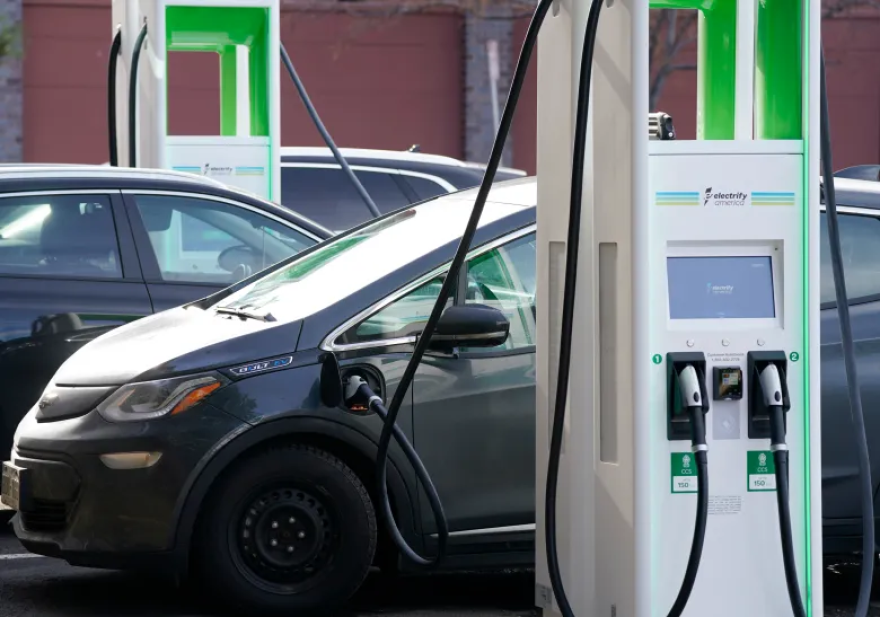State discounts for purchasing heat pumps, e-bikes and electric cars and trucks will be cut in half next year, .
The tax credits, some will be slashed in 2026 because of a dismal state revenue forecast, said Emily Dohrman, senior economist for nonpartisan Legislative Council Staff, at the Joint Budget Committee’s quarterly meeting.
Lawmakers enacted the green to make electric transportation and heating and cooling more appealing to Coloradans. But the availability of the credits hinges on state economic forecasts showing at least 4% projected revenue growth in the next fiscal year, or else they are cut by 50%.
Up until recently, it looked like the state’s forecast revenue growth requirement would be reached. Just a few months ago in March, state economists projected the green tax credits would remain fully intact. But since then, “lower collections and a reduction in expectations for the economy” soured the June forecast, Dohrman said. She said revenue is expected to increase only by 2% next year.
The halving of the state incentives paired with Congressional Republicans’ proposal to as part of their big budget bill would result in far less money available to help Coloradans electrify their homes and transportation.
Transportation and buildings are two of the . Proponents of electric vehicles credited the combination of federal and state incentives for a .
The state tax credits for electric were scheduled to range between $1,500 and $8,000 for next year, depending on the kind of vehicle. Tax credits for were supposed to be $500 ($50 for retailers and $450 for purchasers), and tax credits for were scheduled to range between $250 and $2,000, depending on the kind of system. All will be halved.
A $2,500 bonus credit for vehicles with a retail price less than $35,000 will remain intact, as will other incentive programs, like Vehicle Exchange Colorado, which helps income-qualified Coloradans replace their gas cars with electric ones.

Ari Rosenblum, spokesperson for the Colorado Energy Office, which administers the tax credits, said in a statement the office is committed to cost-saving incentives.
“At a moment of increased uncertainty, including with Republicans in Congress attempting to remove long-standing tax credits and initiatives to incentivize clean energy and clean vehicles, we look forward to working with the Colorado General Assembly to continue to lead on the transition to more affordable and cleaner technologies,” Rosenblum said.
GreenLatinos Colorado, a nonprofit Latino environmental advocacy group, pushed for the tax credits and has been working to connect people of color and low-income Coloradans to them.
Ean Thomas Tafoya, state director for GreenLatinos Colorado and vice president of state programs for the group’s national organization, said the planned cut to the tax credits is “incredibly disappointing.”
Halving the credits will leave heat pumps, and electric vehicles out of reach for many who are most affected by , he said, especially from trucking in their neighborhoods.
“These are the communities who are bearing the load every day of logistics,” Tafoya said. “These credits make a difference to their health.”
Other tax credits could be on the chopping block if the economy doesn’t improve this year. A tax credit for hinges on a positive September forecast and a tax credit for hinges on a December one.
The shows the legislature is likely to have to make at least $700 million in spending cuts to the budget next year relative to its current plans. And that’s without factoring in being proposed by Republican lawmakers in Washington, D.C., that could upend the state’s current budget.
Members of the JBC said they could adjust the tax credits before next year if the legislature is called into a special session to sort out its current budget. Otherwise, the legislature won’t reconvene until January.



